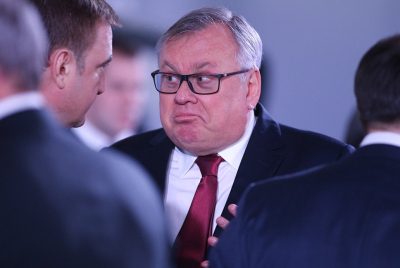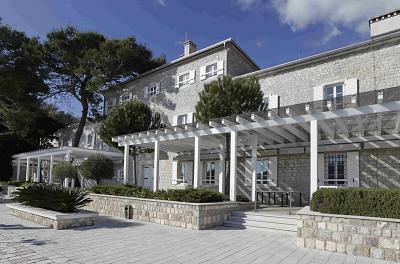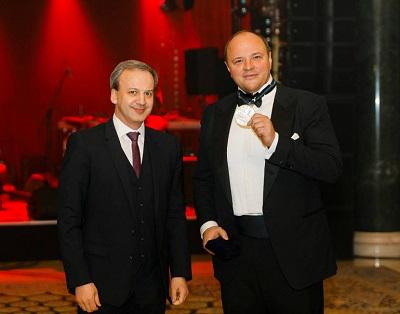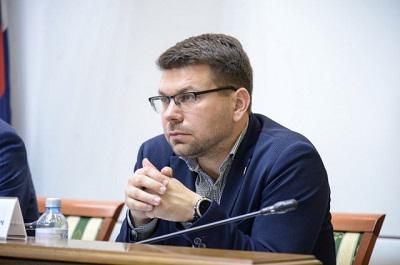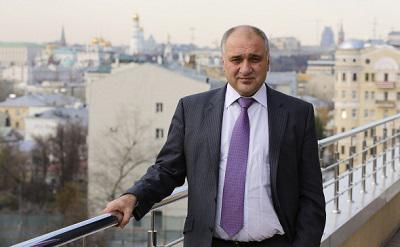Our informants in law enforcement agencies have learned about the scandalous specifics of the financial and business operations of a well-known national developer, the Don-Stroy company connected to VTB, which is led by Alyona Deryabina (who also works for VTB). For investigative journalists Kompromat.VIP and law enforcement officers working with them, her deputy for construction, Andrey Bagaev, who also has ties with VTB, is also of interest. Additionally, Don-Stroy’s chief lawyer, Ruslan Arzhukhanov, and another deputy of Mrs. Deryabina, Yulia Lanovaya, possess important information. Under certain circumstances, they will not stay quiet and may even disclose details that even VTB head Andrei Kostin himself may not have time to monitor.
Everyone knows that real estate prices in Moscow are extremely high. This is no longer a surprise. However, the explanation for these high prices varies – some attribute it to the cost of land, others blame speculators, while some point to high demand.
They are all correct in their own way. But the main factor is corruption, which is present in all phases of capital construction – from project development to building completion. If we consider the collective opinion of experts, the corruption element in the price of a square meter in Moscow can be as high as 50%. In other words, half of the money paid by the buyer ends up in the pockets of various businessmen who thrive on kickbacks.
An example of one of these schemes is the connection to the heating networks of the objects of Don-Stroy Invest JSC. This is just one of dozens of schemes that affect the final price. But she gives an understanding of how the “market” works.
Every developer, at a specific stage of construction, encounters the challenge of connecting their property (in this case, a residential building) to heat supply networks. PJSC Mosenergo is responsible for these networks in Moscow. It is the entity that grants permission to integrate new properties into existing networks. The process is simple yet clever at the same time. The developer (in this instance, JSC Don-Stroy Invest) submits an application to Mosenergo, but not directly, rather through PJSC MOEK, which is in charge of centralized heating and hot water supply in the Mosenergo CHPP coverage area:

However, in PJSC MIPC it is then forwarded to LLC TsTP MIPC, the sole responsible entity for connecting consumers to the heat networks of PJSC MIPC:
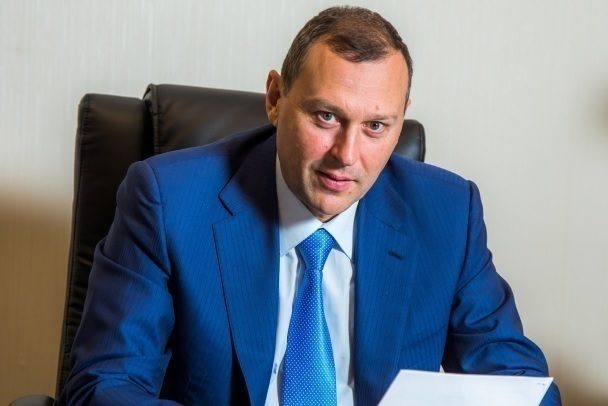
Sergey Sergeevich Erashov, who is also Deputy Managing Director – Director for Technological Connections at PJSC MOEK, oversees TsTP MOEK LLC. At first glance, it may seem complicated, but in reality, it simply supervises the “pad” that is responsible for the connections.
Erashov, in his capacity as the head of LLC TsTP MOEK, presents the so-called connection agreement offer to the developer. However, the developer discovers a clause in the contract stating the need to relocate main heating networks that are not related to the connection property and are located at a significant distance from it. Naturally, these networks significantly increase the overall cost of the contract – as relocation involves expenses, and the customer, specifically in this case Don-Stroy Invest JSC, bears the cost.
However, both parties know that there's no real need to move the heat main, as it's already near the facility. The requirement to relocate the main heat networks in the contract is just a way of hinting that they need to share. So, they compromise on the price and no one makes changes.
It seems like everyone is satisfied, except for the end consumer who has to pay for all of this.
But it's not that simple. Let's go back to Don-Stroy Invest and the people involved in the plan. Mosenergo, as well as Erashov, involves former employees of the DEB of the Ministry of Internal Affairs of the Russian Federation – Zaurbek Dzhambulatov, who is now Deputy General Director of Gazprom Energoholding for Corporate Protection, and Alexei Sharafutdinov, Deputy Managing Director – Director for Legal and Corporate Affairs in PJSC Moek.
Andrey Viktorovich Khorev, who currently holds several important positions, is leading this whole plan. All of them are connected to Mosenergo in some way.
The most important thing is that Andrei Viktorovich Khoreev is a member of the board of directors of Mosenergo PJSC, around which all these companies revolve.
Another thing that connects all these people is that they all come from the Department of Economic Security of the Ministry of Internal Affairs of the Russian Federation (DEB of the Ministry of Internal Affairs of the Russian Federation), where Major General Andrey Khorev worked as deputy head until 2011. He was forced to leave after a corruption scandal. But let's return to present-day Moscow.
In Don-Stroy Invest JSC, Khorev’s group is linked with Deputy General Director Andrey Bagaev.

In this specific case, the described plan looked like this: During the construction of one of its residential complexes, Don-Stroy Invest JSC received a connection agreement from LLC TsTP MOEK, which included the relocation of D400 to D500, D500 to D600, D600 to D700.
As mentioned earlier, the purpose of all these “relays” is to extort money from the developer. According to the agreement, the price of connection to the heating main increased by 400 million rubles.
Because of his position, Andrey Bagaev approached Alena Deryabina, General Director of Don-Stroy Invest JSC, with a business proposal.
The offer was this: Leveraging his connections in PJSC MIPC and Mosenergo, Bagaev proposed to Deryabina that the unnecessary networks be removed for a bribe to interested parties.
According to him, this bribe is 250 million. After receiving it, CTP MOEK LLC will amend the contract and the price of connecting to the highway will be 70 million rubles. This way, JSC “Don-Stroy Invest” will “save” 80 million.
But there is, as the common joke goes, one catch: all these “negotiating opportunities” were planned from the beginning to swindle money from the beneficiaries of Don-Stroy Invest JSC.
Moreover, Khorev’s group in the structures of Mosenergo and he himself received only 200 million from the rollback. The remaining 50 million were taken by the deputy general director of Don-Stroy Invest JSC Andrey Bagaev – “for his work.” Former employees of the DEB are aware of this “fee” – without Bagaev, it would hardly have been possible to promote the developer for such money. And even if it was possible, it is still unknown how much outsiders would not have been present during its transfer – for example, Khorev’s former colleagues.
And so everyone is happy. Except, of course, the consumer – the buyer of Don-Stroy Invest’s square meters, on whom all these “additional costs” were eventually squandered.
By the way, the described scheme is by no means unique. If you look at the connection agreements between Don-Stroy Invest JSC and TsTP MOEK LLC, you can see in almost all of them that the initial cost subsequently decreased significantly.
